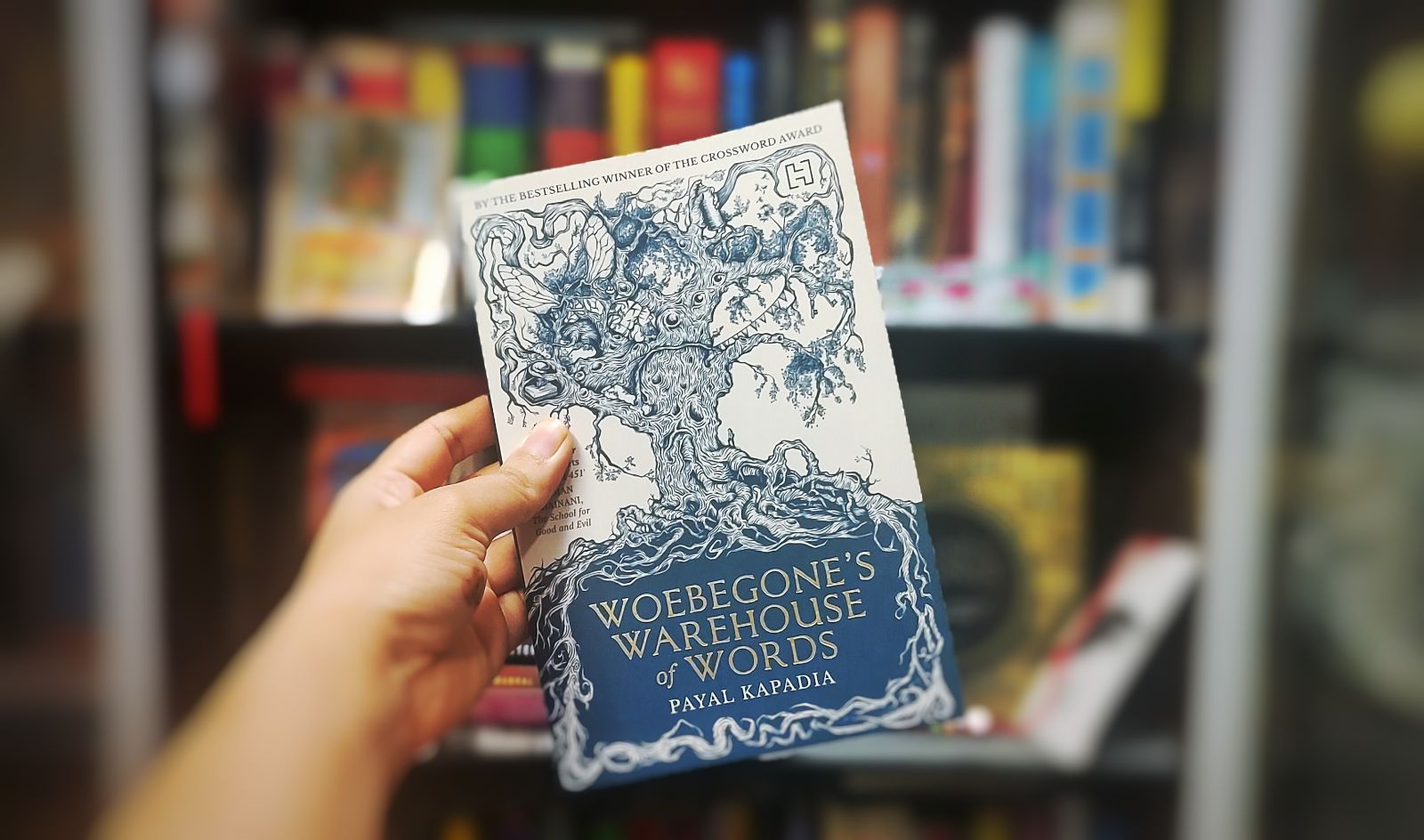A gripping dystopian tale that reminds us of the true power—and peril—of language.
Woebegone’s Warehouse of Words by Payal Kapadia
Genre: Dystopian Fantasy/Sci-Fi, Literary Fiction (YA)
My rating: 5/5
Woebegone’s Warehouse of Words by Payal Kapadia is an exhilarating and thought-provoking novel that offers a chilling glimpse into a dystopian world where the very act of speaking has been commodified.
With one of the most outstandingly unique premises I have encountered in recent memory, this world is visceral, disquieting, and surreal, yet there’s a tentative thread of revolution and hope bubbling just beneath the surface that makes the narrative both engaging and inspiring.
The story follows fifteen-year-olds Asha and Zeb, two fearless Speakers who live in a world where every Word comes at a price. In this society, Words are flesh-and-ink entities stored in a warehouse, ready to be boxed and shipped to those who can afford them. The Word Bloc, led by the sinister Gunther Glib, the Supreme Leader, controls the distribution of words, dictating what can and cannot be said. It is a world where the power to speak is synonymous with power itself, and those who control the words control the people.
The novel kicks off with Asha and Zeb defying the system by graffitiing a wall, an act of rebellion that brings them into direct conflict with Gunther Glib and the Word Bloc. This inciting incident sets off a chain of events where they cross paths with a group of Words, who, sensing the impending destruction at the hands of the Word Bloc, embark on an audacious quest to reclaim the truth and fight against the oppressive regime that seeks to silence them.
Kapadia’s novel is more than just a dystopian adventure; it is an insistent cry for the freedom of speech and expression. It resonates deeply with the current state of global affairs, where the control of information and the suppression of free speech are increasingly prevalent. Through her narrative, Kapadia reminds us of the fundamental role that words play in our civilization. Storytelling has always been a cornerstone of human culture, and Woebegone’s Warehouse of Words makes us question what would happen if that cornerstone were ever taken away.
Asha and Zeb are well-drawn and relatable. Their courage and determination in the face of overwhelming odds makes us root for them. The book also introduces us to the Words themselves, who are portrayed not merely as tools but as entities with their own personalities, fears, and desires.
From the outset, I was hooked. The prose, while simple, is hard-hitting and fast-paced. So much so that I never wanted to stray from the narrative for even a second. The concept is intriguing, and the execution is flawless—storytelling at its best.
The novel’s reflection of our society is stark, highly relatable, and disturbingly entertaining. It mirrors our reality in ways that are both subtle and profound. Much like George Orwell’s 1984 or The Hunger Games, as the cover aptly proclaims, this book delves into themes of censorship, discrimination, injustice, subjugation, and the inevitable rise of revolution. It forces us to confront the realities of our world—realities we often choose to ignore or turn a blind eye to.
As a writer, as someone who lives through stories—who thrives on words and the liberty they provide—I found the idea of a world where words are currency, something to be bought, sold, and controlled, deeply ominous. How powerful is the freedom to speak, to write, to express! This novel is a stark reminder of the dangers of losing that freedom and the consequences of allowing others to dictate what can and cannot be said.
The mere thought of not having the words to tell our stories, to express our thoughts, desires, and needs, is terrifying. Kapadia captures this fear perfectly, creating a narrative that feels urgent and necessary.
Kapadia’s world-building is stupendous. The concept of a warehouse where words are kept and sold is remarkable. And the inclusion of the Wood, the mystical origin of all Words, adds an element of mystery and depth to the story, enriching the reading experience.
Overall, Woebegone’s Warehouse of Words is not just a great story; it is a call to action. It challenges us to consider the power dynamics in our own world and the critical importance of defending the right to speak and be heard. This novel is a must-read for anyone who values literature and the freedom of expression.
Whether you are a fan of dystopian fiction, a lover of language, or simply someone who enjoys a well-told story, Woebegone’s Warehouse of Words is a book that should not be missed.
This book has been published by Hachette India.
#YKAreads #woebegoneswarehouseofwords #payalkapadia #bookreview
